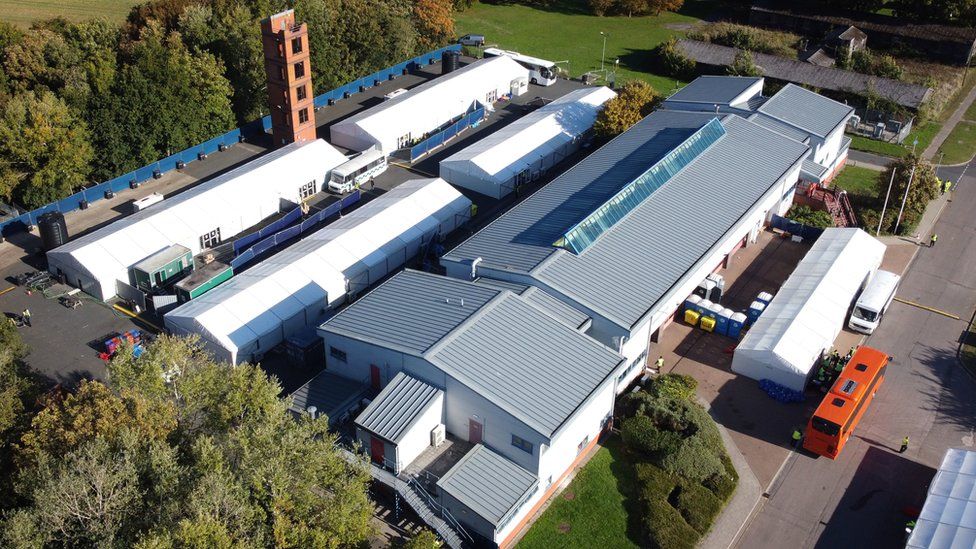 PA Media
PA MediaThe Manston migrant processing centre, a holding site for people who arrive in the UK on small boats, is empty, a Home Office source has confirmed.
Thousands of migrants had been placed in tents at the former military airfield during the autumn, leading to overcrowding and outbreaks of disease.
Officials said everyone staying at the temporary site has been placed in new accommodation.
It is thought the government has bought space in hotels to ease the backlog.
The Home Office’s efforts have been helped by bad weather in the English Channel, causing a sustained fall in the number of crossings.
One source said officials were hopeful that the “next few weeks look OK”.
A source said Manston – which was designed for migrants to be held for a maximum of 24 hours -would be used in future in a way that was “more business as usual” before the congestion started.
A stay of up to five days had been permitted in exceptional circumstances.
But inspectors found families sleeping on mats in the marquees for weeks.
Improvement works to the facilities are set to continue while there are fewer or no people held at the site.
The facility in Kent has been dogged by controversy in recent weeks, including the death in hospital of a man who was staying there. An investigation into his death has been launched.
It comes on top of revelations that the centre was holding up to 4,000 people, around three times its 1,600 person capacity.
There were also reports of people being detained there for up to three weeks due to shortages in accommodation for them to move in to, even though the facility is designed to hold those who arrive via small boats for around 24 hours while they undergo security and identity checks.
They are then supposed to be moved into the Home Office’s asylum accommodation system, which often means a hotel – due to a shortage of available accommodation, such as designated hostels.
Manston, which is a former military base, reopened as a migrant processing centre in February this year to address the growing number of migrants reaching the UK in small boats. More than 40,000 people have crossed the Channel in this way in 2022.
